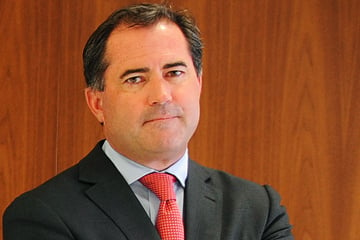
The Canadian government’s charge of fraud and corruption against SNC-Lavalin Group Inc. over its former business dealings in Libya may go to trial, a Quebec provincial judge ruled on Wednesday.

The Canadian government’s charge of fraud and corruption against SNC-Lavalin Group Inc. over its former business dealings in Libya may go to trial, a Quebec provincial judge ruled on Wednesday. But whether that means the case against SNC-Lavalin will ever be heard remains to be seen, owing to the delay in getting the case to trial.
The Crown’s case against the Canadian construction giant is already unusual, says corporate litigator Bruce McMeekin in Toronto.
“It’s a rare case in that the number of Criminal Code prosecutions involving corporations in Canada are few,” says McMeekin. “It’s also the largest foreign corruption prosecution in the sense of involving a publicly traded company with thousands of employees [and] the size of the alleged corrupt transactions.”
In February 2015, the Royal Canadian Mounted Police and the Public Prosecution Service of Canada laid charges against SNC-Lavalin Group Inc. and two of its subsidiaries, SNC-Lavalin International Inc. and SNC-Lavalin Construction Inc. Each company was charged with fraud under s. 380 of the Criminal Code and corruption under subs. 3(1)(b) of the Corruption of Foreign Public Officials Act.
The charges alleged that, between 2001 and 2011, SNC-Lavalin and two of its units paid $48 million in bribes in Libya to officials in the government of Muammar Gaddafi. They also allege that, at the same time, the company defrauded Libyan organizations of $130 million.
SNC-Lavalin announced it would contest the charges; the company’s subsequent request for a remediation agreement (or deferred prosecution agreement) was denied by Canada’s director of public prosecutions, and Canada’s then-attorney general, Jody Wilson-Raybould, did not interfere with that decision.
On the one hand, “the Crown is pursuing the case, which must be based on the evidence of the involvement of the most senior people at the company,” says Lincoln Caylor, a partner in Bennett Jones LLP in Toronto, who specializes in corporate litigation, corporate governance and fraud law. “Otherwise, they wouldn't think they had a reasonable chance of getting a conviction.”
On the other hand, says McMeekin, the “large preliminary issue” for the case getting to trial is that the charges against SNC-Lavalin were laid in February 2015. “That’s 15 to 16 months before the Jordan decision was released by the Supreme Court of Canada, in July 2016,” which created a 30-month presumptive ceiling for the trial of indictable offences such as those facing SNC-Lavalin, he says.
Although “it’s not as straightforward for charges that are laid before Jordan,” the trial court will have the jurisdiction under the Charter to stay a prosecution because of the delay, McMeekin says, and “I got to think that will be front and centre before the trial court.”
Both Caylor and McMeekin predict that, if the Crown is successful in bringing the case to trial, SNC-Lavalin will elect for a trial by judge alone. The company would not readily find a sympathetic jury, McMeekin believes, and Caylor says the liability of the company will ultimately become a legal issue for the court to deal with, with a judge parsing through all the evidence, “and, therefore, it may be more likely that the company will want a single judge hearing the case.”
The case will turn on the involvement of people senior enough to tie the alleged wrongdoing to the company, says Caylor. “The defence might be that the company didn’t condone it, that it was a handful of rogue employees who committed the wrongdoing.” In the United States, this wouldn’t matter, he adds; in a case such as this one, where employees are alleged to have paid bribes and engaged in fraud, the corporation would be liable. In Canada, however, “you have to go up the chain far enough [to show] that senior people have condoned or participated in the wrongdoing.”
A remediation agreement in this case would not have been appropriate, says Caylor, for several reasons, including that two preconditions were not evidently met. First, he says, it appears that SNC-Lavalin did not come forward about the alleged wrongdoing voluntarily; and second, it still maintains that as a corporation it is not guilty of wrongdoing. “And the idea of saving jobs is not an appropriate factor to consider” in granting a remediation agreement, Caylor says.
McMeekin sees an alternative for SNC-Lavalin in changing the “integrity framework” for federal government bidding on contracts. The integrity framework was introduced under the previous government, and under it, when a Canadian company has been convicted of a financial crime such as fraud or corruption, it is suspended by the government for bidding on federal contracts for 10 years.
“That’s what SNC-Lavalin is concerned about,” says McMeekin, and “that’s the policy; it’s not a law.” Rather than pushing for a remediation agreement, “if you want to help out SNC-Lavalin in the event it’s successfully prosecuted, change the integrity framework” so that the 10-year suspension can be waived.
The lesson for Canadian corporations is the importance of compliance and monitoring of employee behaviour.
“I think what the Crown is demonstrating is that we’ve had very few convictions in Canada with respect to foreign corruption, and the Crown is . . . willing to proceed to trial,” says Caylor. For corporations acting abroad, most of them are now putting systems in place to prevent malfeasance, he says.
“It highlights the caution that you’ve got to exercise,” says McMeekin, “and the need for having a compliance system internally, so that you’re in the position to monitor.”
Going forward, he adds, “to obtain a remediation agreement, things like having a compliant system in place that is able to detect corruption and puts the company’s leadership in a position of being able to self-report corruption to the RCMP, those are going to be big factors that play into the Crown’s decision of whether or not to invite a negotiation on a remediation agreement.”